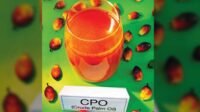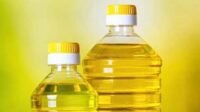PALMOILMAGAZINE, MEDAN – Water is an essential requirement for human survival, but with the growing population and industrialization, the availability of fresh water in the world is diminishing. Only approximately 3% of the total water on Earth is freshwater, while the remaining 97% is saltwater from the sea, which cannot be directly consumed. Consequently, many suffer from health issues or even fatal consequences due to consuming polluted water.
To address this challenge, researchers are developing sea water purification technology utilizing solar steel distillation methods. This innovative approach capitalizes on solar energy, a readily available renewable resource, to convert saltwater (seawater) into fresh water. Solar steel, a straightforward device harnessing solar energy, has proven effective in producing fresh water from seawater.
Despite its significant potential, solar steel encounters productivity challenges. However, a research team from Universitas Sumatera Utara, Indonesia, and Muroran Institute of Technology, Japan, has identified a material that could enhance solar distillation efficiency, particularly in Indonesia. They discovered that palm oil shells, considered industrial waste, possess considerable potential in solar distillation applications.
Also Read: Advocating for Realigning Land and Natural Resource Management
Palm oil shells exhibit excellent thermal characteristics, efficiently absorbing and retaining solar energy. In the context of solar distillation, palm oil shells elevate the temperature within the distillation device, hastening water evaporation and increasing fresh water production.
“One main advantage from palm oil shell is the high thermal characteristic. It absorbs and keeps solar effectively. In the context of solar distillation, it would accelerate water evaporation and produce more fresh water,” Profesor Himsar said, as Palmoilmagazine.com quoted from the official page of Unversitas Sumatera Utara, Friday (26/4/2024).
He also mentioned that the other advantages by using palm oil shell is that it is abundant in big numbers within low cost and even free. This would help to be the alternative within effective costs compared to other materials that could be more expensive. Besides, palm oil shell in solar distillation would support sustainable environment by reducing industrial wastes that should be thrown away or processed.
Their research also showed that palm oil shell applied in solar distillation would efficiently escalate exertion which is the measurement to know how good the device is to change available energy to be more useful energy.
In their study, solar distillation within 5 kilograms palm oil shell would efficiently get 2,879% exertion, while in conventional solar distillation it reached 2,255% exertion. This result showed that palm oil shell would significantly escalate exertion effectively, make solar distillation be more effective and useful.
By taking advantages on palm oil industrial waste, solar distillation would be more effective and useful in the regions within limited access to get fresh water.
“In a whole, palm oil shell would be the innovative and sustainable solution for the future energy and environmental challenges. By applying palm oil shell, we could change waste to be valuable source and positively contribute to the sustainability of our planet,” Prof. Himsar said. (T2)





































